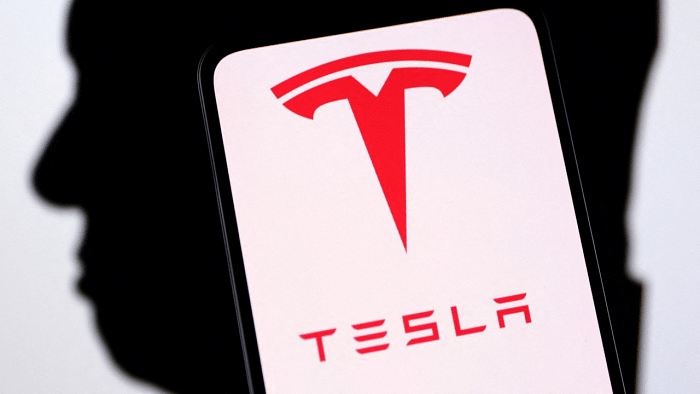
Tesla lost a staggering two-thirds of its market value in 2022, a victim of fears about demand for electric vehicles, dismay at Elon Musk's tribulations as head of Twitter and the end of easy money on Wall Street.
On paper, everything was going well for the iconic electric vehicle maker that overcame supply problems and made nearly $9 billion in profit in the first three quarters of the year despite soaring costs.
But this is slower than the furious pace of growth that CEO Musk demands of his company with his stated ambition that Tesla unseat Apple as the world's most valued company.
Even if the share price is subject "to a lot of emotional elements... Tesla will be by my best guess the most valuable company in the world in less than five years," a defiant Musk told a forum on Twitter this month.
Blaming problems on "macroeconomic conditions" and high interest rates, Musk said he "can't say enough good things" about Tesla, asking his listeners to ignore his misadventures at Twitter where the mercurial CEO has captured headlines since taking over in October.
But to some analysts, the problems at Tesla are more serious and unrelated to Twitter -- mainly because the days where it was the sole player on the electric vehicle market are over.
The new year "is shaping up to be a 'reset' year for the EV market" with supply flooding the market, analyst Adam Jonas of Morgan Stanley said in a note.
"There are hurdles to overcome," added Jonas -- citing increasing competition and a worsening economy, with living costs sent soaring by inflation.
In 2023, the quiet hum of EV motors will be coming from vehicles other than Teslas as traditional automakers roll out models at an unprecedented pace.
In Tesla's luxury car category, Mercedes-Benz, BMW, Audi, Polestar and Rivian have entered the fray and the change is coming fast for Tesla.
While Musk's Texas-based company still captured 65 percent of market share in the first nine months of the year, S&P Global analysts predicted Tesla's market share will shrink to just 20 percent by 2025.
The situation in China is also not helping matters: according to press reports, production is currently suspended in Tesla's Shanghai factory due to Covid-related issues.
To ramp up sales, Tesla has offered a rare $7,500 discount to US customers on the new Model 3 or Model Y, along with 10,000 miles of free fast charging.
Tesla, partly due to its superstar CEO, still has its diehard fans and Tesla is still seen as undisputed in terms of technology, cost management and scale in the fast-growing market.
The investment firm Robert W. Baird believes that the group is the "best positioned in the automotive market" and still recommends buying Tesla stock despite the crash.
Looming over everything is the shadow of Twitter, the influential social network bought in October by Musk -- who fired more than half its staff, inviting controversy.
Tesla needs "a CEO to navigate this Category 5 storm" and not a boss "focused on Twitter," said Wedbush's Dan Ives in a note published Tuesday.
The multi-billionaire sold several billion dollars of Tesla shares to finance his new venture, and has offloaded billions more since the $44-billion buyout -- in breach of pledges to stop selling the stock.
He also provoked critics by inviting Donald Trump and hundreds of other banned users back to Twitter and suspended certain journalists in an apparent fit of pique.
It has become "untenable" to separate the future of Tesla from Musk's erratic management of Twitter, said Colin Rusch, of Oppenheimer.
The events at Twitter are "too much for a majority of consumers to continue supporting Musk and Tesla," said Rusch, predicting the billionaire's antics would drive at least some buyers towards other EV options -- untainted by controversy.
The stock debacle comes after Tesla shares jumped by more than 700 percent in 2020 and 50 percent in 2021.
They have recovered nearly 12 percent in the last two days, but were still down 65 percent on Thursday evening compared to the beginning of the year.